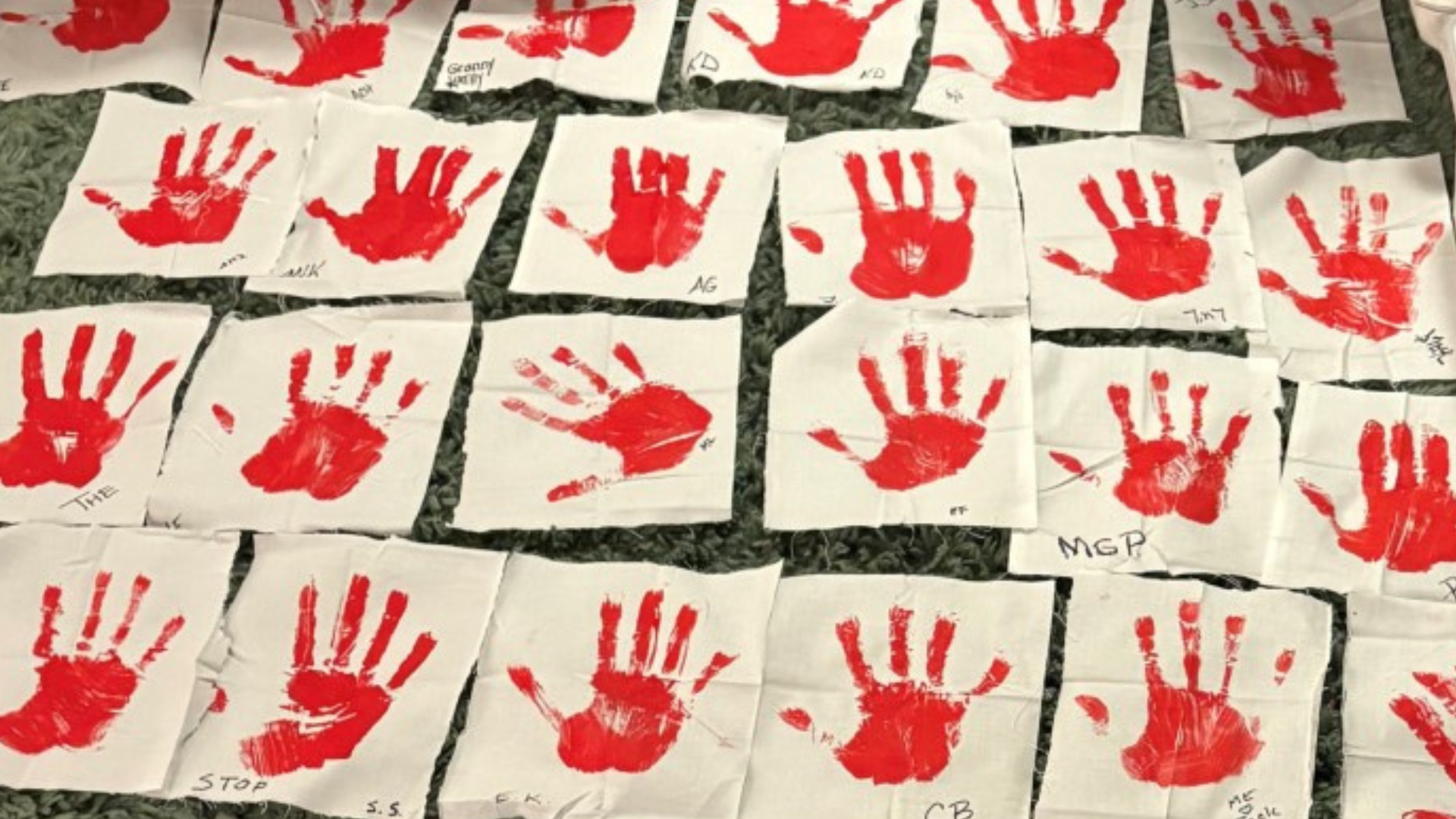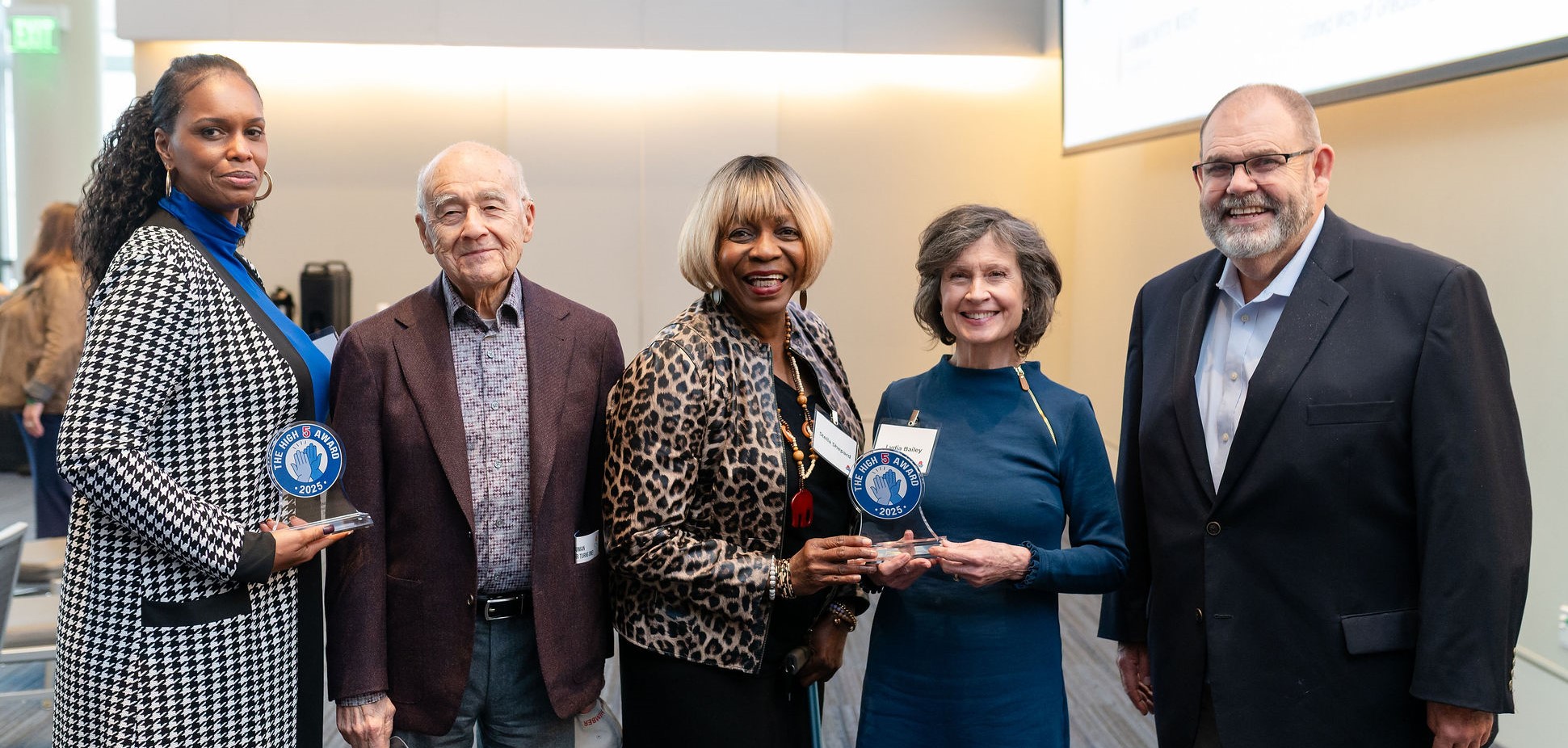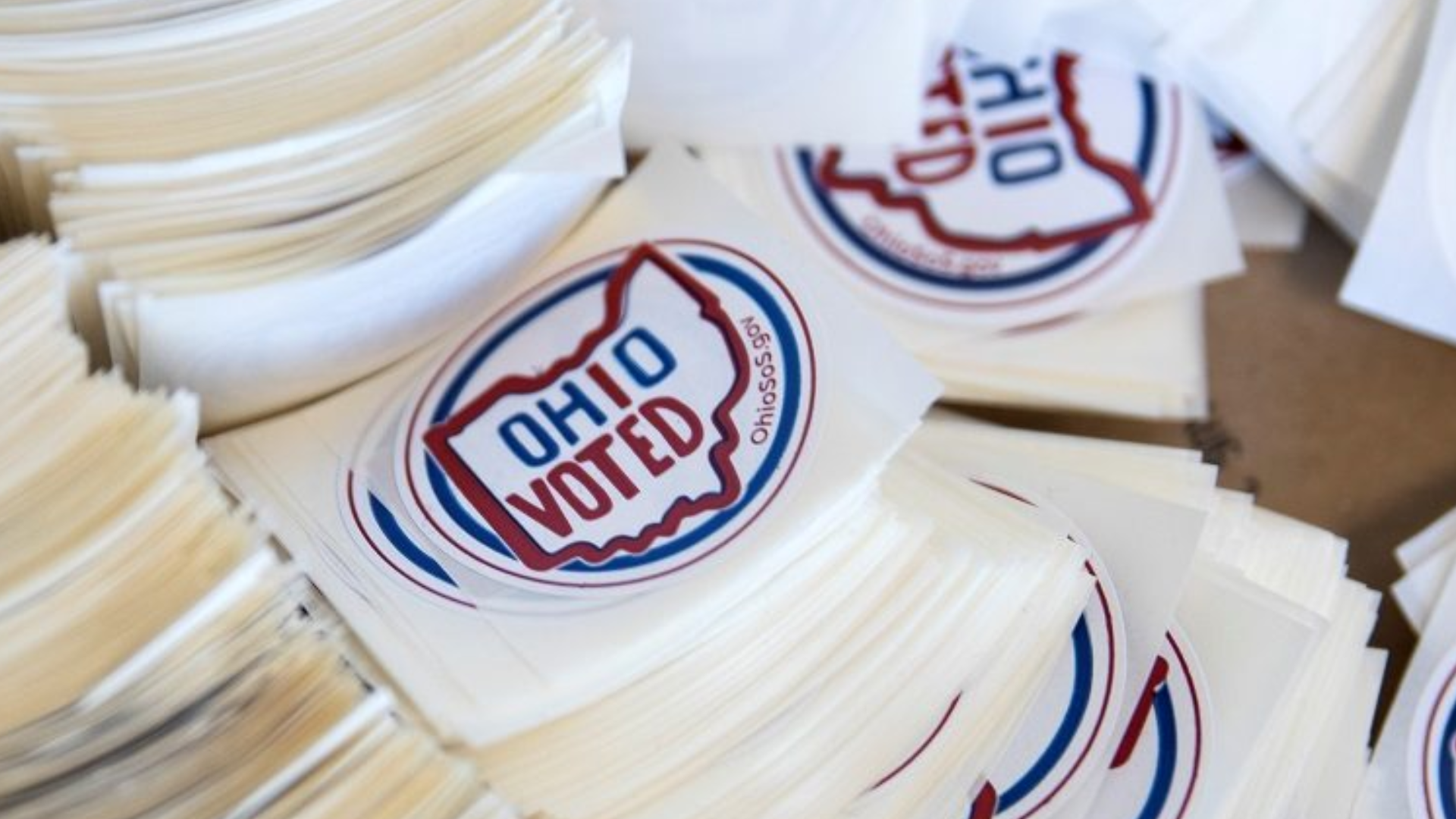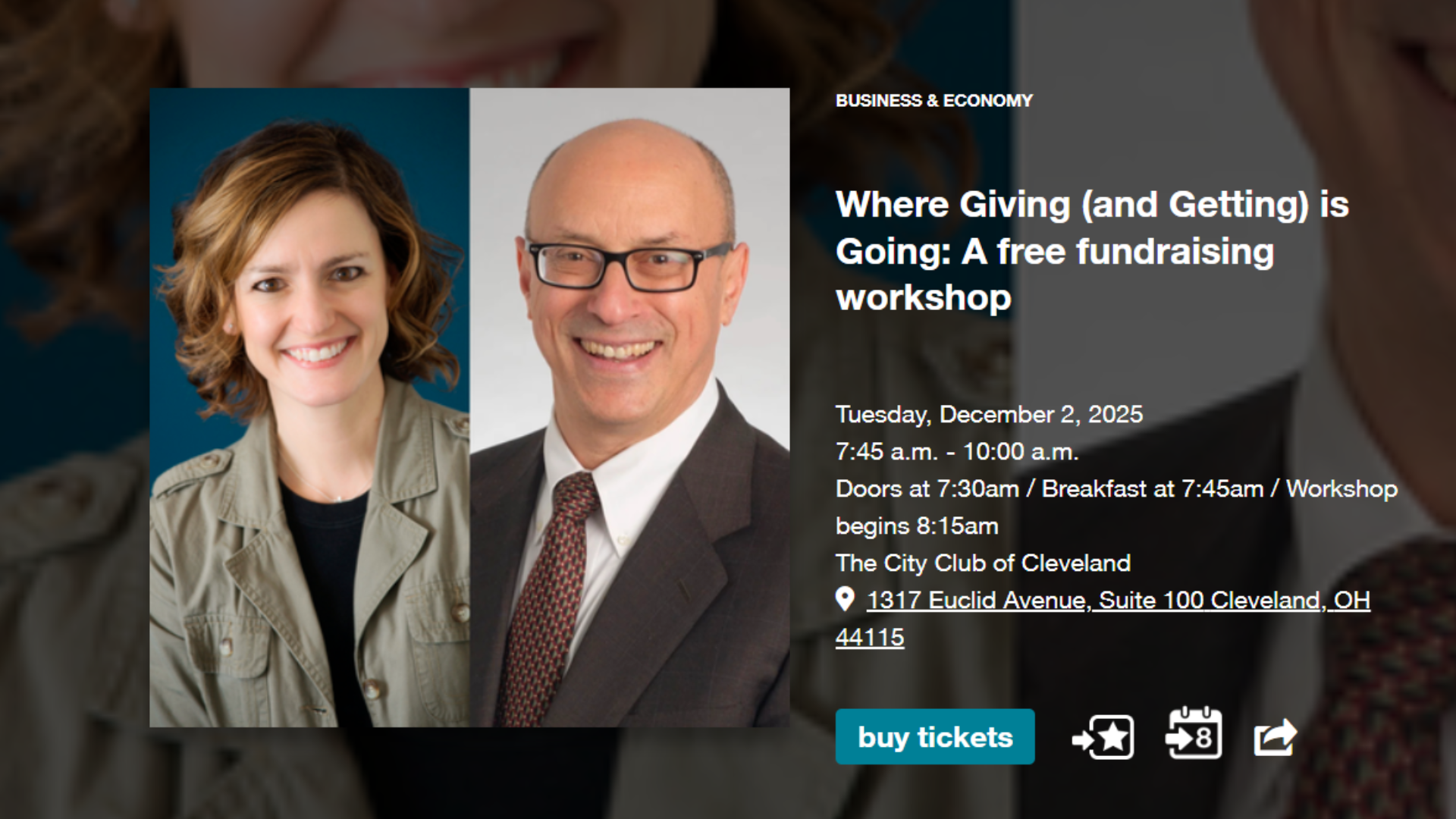In March 2021, the American Rescue Plan Act (ARPA) was passed by the Biden Administration to support communities recovering from the COVID-19 pandemic. The ARPA also created two funds, the Coronavirus Local Fiscal Recovery Fund, and the Coronavirus State Fiscal Recovery Fund. These funds were set to be disbursed across the U.S. with the intention to create a stronger economy mid and post pandemic. The process of disbursing money to states, counties, and major cities had unique civic implications. Community Solutions previously published research analyzing how different states incorporate advocacy in the grantmaking process. The states of focus in this were Colorado and Alaska.
Community Solutions decided to take leadership in our own space, harnessing our ability as a think tank to create a round of grants that we would disburse to nonprofits working in Cleveland related to civic advocacy and the American Rescue Plan.
In addition to ongoing ARPA research at Community Solutions, the question arose amongst stakeholders on how Ohio could create opportunities for ARPA engagement. Emphasis on civic opportunities to advocate for ARPA funds was particularly of focus, mainly because of the needed effort to support marginalized communities. Community Solutions decided to take leadership in our own space, harnessing our ability as a think tank to create a round of grants that we would disburse to nonprofits working in Cleveland related to civic advocacy and the American Rescue Plan. Funding for this round of grants came from support with the George Gund Foundation, The Cleveland Foundation, and Mt. Sinai Health Care Foundation.
Background on the GCARP Grants
Community Solutions’ work tracking ARPA began with bringing together stakeholders in Cleveland to discuss how to go about advocacy for ARPA. In this work, Community Solutions produced 10 policy requests. These policy asks also became part of the guidelines that Community Solutions used when choosing grantees. Below are each of the 10 policy areas:
- Workforce Supports: Supporting workers secure jobs that pay a living wage and access to resources that help them get those jobs. Also improving public transportation infrastructure and developing job training programs to help attract and retain talent in the social services sector.
- Economic Recovery: Investments to local and small businesses in neighborhoods. In addition to this, the development of strategic investments that would help position Cleveland for economic growth in the future.
- Healthy and Affordable Housing: Investing in meeting the immediate needs for safe and affordable housing and creating solutions that address some major ongoing housing challenges in Cleveland.
- Broadband and Technology Access: Working to close the digital divide through investments in broadband infrastructure. In addition to this, strategies to increase access to accommodations and tools needed to use technology.
- Early Care and Education: Access to reliable, high quality early childhood care for individuals who need it. This also consists of building out social emotional and educational support.
- Behavioral & Physical Health: This consists of developing quality community-based behavioral health. Other efforts to bolster the direct service workforce were centralized in this as well.
- Modern Government and Civic Engagement: Work in this area consisted of advocating for investments in services and technology to improve the way that people receive services from the government. This also focused on creating a more engaged community.
- Basic Needs: Across all areas, the fundamental need for shelter, food, healthcare, and employment opportunities are concentrated in this component. This focus is especially needed after the end of the federal public health emergency.
- Public Health: Work in this area focused on advocating for investments in public health infrastructure to support the disparities that impact communities, and efforts to prevent spreads of disease.
- Climate Justice: The environmental issues impacting communities also have a negative impact on others. This calls for investments in health public spaces that can support the use of renewable energy sources, eliminate lead risk, and improve air quality.

The GCARP Grant Process
Last year, a plan to release a round of grants to nonprofit organizations began formulating internally. The grant would amount to $5,000, and it would be awarded to nonprofits that were engaged in advocacy or planning to engage in advocacy related to the ten policy areas identified by the GCARP Coalition. Another requirement for qualification stipulated that the nonprofit would have to be in Cleveland or Cuyahoga County doing work on a county- or city-wide level to increase change based on their focus area. The GCARP Grant Application opened on October 10, 2022, and applications were accepted until November 10, 2022. After the grantees were chosen, Community Solutions published the list of grantees. In the next section, each organization will be highlighted and the work they engaged in will be discussed.
GCARP Advocacy Areas
In this section, a comprehensive analysis of the GCARP grantees will be applied to understand underlying themes that arise from their advocacy efforts. Each organization working in Northeast Ohio contributed to the betterment of the community in unique ways, with a variety of approaches to community engagement and advocacy. This ranges from literacy lounges hosted by Comics at the Corner or the development of a jobs guarantee pilot spearheaded by Universal Basic Employment and Opportunity. Each of the 12 GCARP Grantee organizations have interconnected themes that reflect the importance of positive change and community resilience. Below is a list of key themes that were common in the multifaceted strategies of the GCARP grantees as they worked to support and foster thriving communities in Northeast Ohio:
Community Empowerment and Advocacy
Across all levels of work, the GCARP grantees worked to elevate and empower their communities. Whether it is hosting community conversations like the Harvard Community Service Center, or training patient advocates like Planned Parenthood, all efforts of the GCARP grantees focused on collectively uplifting and advocating for the wellbeing of their stakeholders and communities. This commitment extends beyond individual programs; there is a cohesive narrative of community empowerment where every level of organizational activity plays a role in addressing needs around ARPA advocacy. These initiatives by the GCARP grantees form crucial building blocks that construct a lasting foundation for change and empowerment.
Collaborative Networking and Relationship Building
Organizations such as Comics at the Corner or National Black Child Development Institute worked to build partners with local advocacy organizations and state agencies to help in the distribution of materials and coordination of advocacy efforts. These relationships are beyond partnerships because they also exist as a network of support, cooperation, and resource distribution that enhances the impact of initiatives. This is also evident in work done by M-PAC and Universal Basic Employment and Opportunity, where both organizations worked to develop relationships with partners not only to distribute and disburse materials, but also to build upon existing advocacy efforts done by the organization. Broadly speaking, this theme highlights the fact that much advocacy relies on relationships, and relationship building, just as much as it relies on work and operations existing.GCARP grantees showed commitment to working toward legislative impact and policy advocacy.
Legislative Impact and Policy Advocacy
GCARP grantees showed commitment to working toward legislative impact and policy advocacy. This consisted of providing spaces for community members to voice their own concerns and communicating that to legislators or bringing them into community conversations to increase transparency and access to resources. An example of this is how Universal Basic Employment and Opportunity utilized focus groups that are then used to advocate on the city, county, and state level. Another example of this is how the Northeast Ohio Coalition for the Homeless worked to center directly impacted people in their Homeless Congress, which consisted of collective action and leadership development to empower residents to advocate for just policies to get to the root cause of homelessness. Through the many activities of the GCARP grantees, opportunities to advocate for policy related to ARPA and contribute to broader dialogues on disparities impacting local communities.
Resiliency and Community Well-being
Within the deeper focus of the efforts of GCARP grantees, another common theme emerges around building resiliency and community wellbeing to help aid those that need resources. There are many ways that this occurred, ranging from M-PAC’s work to support victims of gun violence, or CCOAL’s work to provide education on risks of lead poisoning, or even Planned Parenthood’s work to create mutual aid kits. The issues plaguing people in Cleveland and Cuyahoga County are vast and incredibly complex, and sometimes addressing them means providing tangible resources to address the situation to produce immediate change. Efforts by the GCARP grantees to promote resiliency through these efforts in coordination with ARPA advocacy demonstrates a nuanced understanding of how interconnected advocacy is in relation to community health. Perspectives such as these recognize that community well-being requires a multifaceted approach to initiate lasting positive change.
Conclusions and policy reflections
The 12 organizations chosen for GCARP grants supported their community through various programs, initiatives, and advocacy practices within the policy asks of the GCARP coalition. Much of the work done by the grantees is varied, with vastly different frameworks around engagement, advocacy, and direct services, but each organization coalesces around building a better Cleveland through engaging with legislators in their communities to discuss ARPA and providing direct services to stakeholders.
The opportunity for policy advocacy within these nonprofits was also strengthened by the allocation of our GCARP grant.
The advocacy of the grantees also addresses broader questions about what advocacy means in a world marred by a pandemic that reduced social engagement and erased many parts of social life. The answers to this question lie in the multifaceted programs, trainings, and community events utilized by grantees to facilitate civic opportunity and contribute tangentially to the wellbeing of communities in need. Each organization allocated a GCARP grant had work unique to the community and mission statement of the organization. The opportunity for policy advocacy within these nonprofits was also strengthened by the allocation of our GCARP grant.This GCARP grant process was extremely rewarding and supporting/contributing to their work where possible was exhilarating. As work continues in Cleveland and Cuyahoga County to support communities in need, we at Community Solutions hope to continue building relationships with each grantee so that we can strengthen our relationships with organizations working to directly serve the needs of others and help foster needed change for a better future.
Grantees: Work and results
Lutheran Metropolitan Ministry (LMM)Area: Workforce Supports, Economic Recovery, Basic Needs
2023 Initiatives
Charles See Forum on Reentry
- LMM's third annual Charles See Forum on Reentry, held in April 2023, featured Andre Ward advocating for second chances for restored citizens in the workplace. Mr. Ward addressed critical topics such as prevention strategies, the true meaning of rehabilitation, and the need to confront a racially biased mass incarceration system.
Lydia Bailey’s Portraits of Strength Exhibit
- Lydia Bailey's Portraits of Strength Exhibit was featured at a reception following the Charles See Forum, where LMM encouraged identifying corporations for fair chance hiring practices. Mr. Ward also engaged with LMM's Chopping for Change participants, sharing insights into his post-release journey.
People’s Reentry Assembly
- The People’s Reentry Assembly, also organized in April, was a two-part event featuring citizens, policy experts, and community leaders. The focus was on storytelling for self-advocacy and policy-advocacy. Attendees learned to express their stories through poetry, writing, or interviews. The second part, during Reentry Week, explored Fair Chance Housing and Hiring policies, attracting over 70 participants, and fostering discussions on the impact of collateral sanctions.
Advocacy Materials and Outreach
- LMM's Department of Advocacy crafted materials emphasizing fair chance hiring and housing concepts. These resources were widely distributed, including at the People’s Reentry Assembly and Charles R. See Forum, and used in meetings with external stakeholders, such as Cuyahoga County Council, Cleveland City Council, and the Center for Community Solutions Board of Directors.
Northeast Ohio Coalition for the Homeless (NEOCH)Area: Public Health Infrastructure, Healthy and Affordable Housing, Basic Needs, Behavioral and Physical Health
2023 Initiatives
Public Forums
- NEOCH organized panels and public forums in schools and recreational centers to promote access to people experiencing homelessness. This also consisted of engaging with residents in low service, high eviction neighborhoods to increase awareness of needs. NEOCH also visited recruited participants to engage in building a Care Response model in Cleveland to incorporate the perspectives of individuals with lived experience of homelessness.
Facilitation of Homeless Congress
- Continued to facilitate the Homeless Congress and engage with its leaders, empowering individuals with lived experience to actively advocate for systemic change.
Relocation Assistance
- Offered relocation assistance to individuals residing in unsafe and condemned buildings, prioritizing their safety, and assisting in securing alternative housing options.
Affordable Housing Capacity Building
- Focused on capacity building in code inspectors, receivership, and home repairs, aiming to preserve existing affordable housing and prevent homes from deteriorating into unsafe or obsolete conditions.
National Black Child Development Institute-Cleveland (BCDI)Area: Early Care and Education, Workforce Supports, Economic Recovery
2023 Initiatives
Development of Community Think Tank
- BCDI conducted planning meetings in February 2023, followed by face-to-face sessions from March to April 2023 which worked to establish a Community Think Tank. This provided a secure space for educators, parents, and community members to openly discuss community stressors and their post-pandemic impact on the school community.
Working to Uplift Efforts of Students
- During the GCARP period, BCDI Ohio worked to give a voice to those connected with students, addressing the challenges arising from insufficient support for emotional health. The initiative included the provision of resources, discussion platforms, and validating conversations to highlight the need for assistance.
Town Hall Meeting
- BCDI Ohio organized a town hall meeting aimed at enhancing public awareness among citizens and policymakers. The town hall meeting, held on May 11 and May 24, brought together diverse stakeholders including parents, educators, community activists, counselors, social workers, ODJFS (Ohio Department of Job and Family Services), center administrators, legislators, and council members. Concurrently in May 2023, efforts were also directed at educating legislators by providing them with comprehensive information, including data, research, stories, and general insights into key issues related to SEL practices.
Community Survey
- As part of ongoing research, a survey was created to identify stressors in the Cleveland community. Subsequently, a detailed report on the collected data was generated to be shared with community stakeholders. The information connected from the survey would be used to educate legislators on key issues impacting their communities.
Planned Parenthood of Greater Ohio (PPGOH)Area: Public Health Infrastructure, Behavioral and Physical Health
2023 Initiatives
Abortion Care Kits
- PPGOH's advocacy team, supported by the GCARP grant, has persistently recruited, trained, and supported patient advocates across their health centers in Cuyahoga County. A notable initiative involved a mutual aid project where volunteers and the advocacy team assembled over 300 abortion care kits containing various supportive items for patients served at PPGOH health centers. These kits were distributed to patients in Cuyahoga County after their procedures.
Training of Patient Advocates
- The advocacy team extended its efforts to train patient advocates as storytellers for government testimony, media, and advocacy events. The overall aim of these efforts worked to increase advocacy and engagement, particularly in areas most affected by threats to reproductive health care access.
Empowerment and Leadership Development
- The focus of PPHGOH emphasizes empowering patient advocates, encouraging the sharing of personal stories, and providing targeted leadership development for individuals who have had abortions and their allies. The financial support from the GCARP Coalition proves instrumental in sustaining these community-based advocacy efforts.
Black Lives Matter Cleveland Inc. (BLM)Area: Basic Needs, Modern Government & Civic Engagement
2023 Initiatives
Enhanced Community Engagement
- Black Lives Matter Cleveland, with support from the GCARP grant, has notably enhanced community engagement by participating in various events throughout the spring, summer, and fall, establishing a significant presence in Cleveland advocacy spaces.
Increased Community Input and Participation
- Black Lives Matter Cleveland has successfully increased community input and participation in county council meetings, particularly on the "no new jail" topic, achieving a substantial 60% rise in public comments during committee and public meetings.
Expanded Communication Efforts
- Demonstrating expanded communication efforts, Black Lives Matter Cleveland has launched its own website and domain specifically for the "no new jail" campaign, highlighting an increased commitment to outreach and information dissemination.
Impact on Garfield Heights Opposition
- The impact of BLM Cleveland's advocacy work is evident in the attention and support garnered from Garfield Heights residents opposing the construction of a jail in their community. The recent county council meeting saw a substantial turnout of over 70 people vehemently expressing opposition to the proposed new jail in Garfield Heights.
M-PAC Cleveland (More Prayer, Activity, and Conversation)Area: Public Health Infrastructure, Economic Recovery, Behavioral and Physical Health
2023 Initiatives
M-PAC Support Activities Expansion
- M-PAC broadened support activities, specifically targeting families affected by crime and gun violence. They partnered with Mothers on a Mission for monthly support sessions, aiming to uplift and inspire healing. Sessions from April to June were canceled due to unforeseen circumstances, with plans to resume in the Fall and a Virtual Holiday Activity & Conversation Event set for December 20.
Community Engagement and Partnerships
- In collaboration with the Together We Rise coalition, M-PAC engaged in the Community Walk Project Phase II on February 25, offering resources, marketing materials, and refreshments. Additionally, they launched the “We Care Bags” initiative in partnership with the Cleveland Metropolitan School District Civics 2.0 Program. Forty prototype bags were created for the April 29th launch and 20 prototypes were distributed by June 30th.
Gun Violence Awareness Initiatives
- For Gun Violence Awareness Month, M-PAC purchased billboard ads, resulting in the resolution of a 12-year-old murder case. During Survivor Walk Day, M-PAC distributed 65 Wear Orange t-shirts and orange backpacks. M-PAC also sponsored 10 events during Gun Violence Awareness month, including a summit, land blessing, Survivor Walk, Worship Service, and a watch party, experiencing a 70% increase in overall event attendance.
Further Fundraising Opportunities
- The "We Care Bags" initiative received positive feedback, and M-PAC plans to fundraise for additional bags and food gift cards. Despite challenges, their engagement during Gun Violence Awareness month led to a 40% growth in the mailing list, with tracked social media posts reaching nearly 9,000.
Northeast Ohio Worker CenterArea: Workforce Supports, Basic Needs, Modern Government and Civic Engagement
2023 Initiatives
Cuyahoga County Wage Theft Ordinance
- In May 2023, Cuyahoga County passed a wage theft ordinance that closely mirrors the legislation implemented in the City of Cleveland last December. This ordinance also takes advantage of community education and enforcement resources established through the Cleveland wage theft ordinance, emphasizing a collaborative and region-wide approach to addressing wage theft.
City of Cleveland Minimum Wage Legislation
- In July 2023, the City of Cleveland introduced legislation mandating a minimum wage of $15.33 per hour for all city employees and covered contractors. Notably, this minimum wage is indexed to inflation and is subject to annual evaluations for potential increases, demonstrating a commitment to fair compensation and economic well-being for workers.
City of Euclid Wage Theft Ordinance
- Also in July 2023, the City of Euclid passed a wage theft ordinance mirroring the legislation enacted in the City of Cleveland and Cuyahoga County. This expansion of wage theft protections underscores a broader regional commitment to improving labor standards and safeguarding workers' rights in Northeast Ohio.
Comics at the CornerArea: Early Care & Education
2023 Initiatives
Literacy Lounges and Community Engagement
- Comics at the Corner hosted two Literacy Lounges, which were hosted on May 13th and June 10th. The May 13th Literacy Lounge was hosted at Edwin’s Bakery and Butcher Shop, and the June 10th literacy lounge was hosted at the Concerned Citizens Community Council in the Mt. Pleasant Neighborhood. In addition to this work, a Community Easter Egg hunt was hosted on April 1st at the Zelma George Rec Center with support from the Ward 4 Council representative.
Literacy Awareness
- The Literacy Lounges resulted in notable impacts, including an increased awareness of literacy challenges and the organizations actively addressing them. By addressing the specific needs of the target communities, the initiative contributed to a broader understanding of literacy issues and potential solutions.
Community Relationship Building
- Comics at the Corner successfully initiated and sustained five new community relationships with key organizations: Literary Cleveland, Carol and John’s Comic Book Shop, Fifty 50 Comix Publishing, Edwin’s Leadership Institute, Concerned Citizens Community Council, and Mandel Jewish Day School. This network expansion signifies a collaborative approach to addressing literacy challenges, fostering a stronger community support system.
Community Engagement and Distribution Metrics
- Demonstrated a tangible impact on community engagement by distributing over 1000 comics to residents in the targeted communities of Mt. Pleasant, Buckeye-Shaker, and Woodland Hills. This distribution not only provided entertainment but also actively contributed to fostering literacy awareness, creating a positive and lasting impact on the participating communities.
Northeast Ohio Black Health CoalitionArea: Public Health Infrastructure, Basic Needs, Behavioral and Physical Health
2023 Initiatives
Event Organization and Community Focus
- The Northeast Ohio Black Health Coalition orchestrated two impactful events with the assistance of the GCARP grant: the Minority Health Month Health and Wellness Fest and Aches Pains and Automobiles Men’s Health Tuneup. These initiatives targeted areas with elevated instances of disease, disability, and mortality, aiming to confront health disparities in affected communities.
Community Connection and Comprehensive Resources
- Both events served as robust platforms to link the community with vital resources, providing health screenings, COVID vaccinations, information, and access to health agencies and insurance. Going beyond traditional health-centric activities, the initiatives incorporated elements like music, food giveaways, bounce houses, gaming trucks, and food trucks, fostering an engaging and inclusive environment.
Post Covid Engagement Successes
- The Minority Health Month Health and Wellness Fest attracted 125 attendees, while the Aches Pains and Automobiles Men’s Health Tuneup drew 150 attendees. These attendance figures underscore the success of the events, which is particularly noteworthy because they marked a return to community gatherings after the COVID emergency.
Concerned Citizens Organized Against Lead (CCOAL)Area: Climate Justice, Public Health Infrastructure
2023 Initiatives
Community Education Training
- CCOAL efficiently utilized a grant to conduct a three-week community education training program, benefitting 20 individuals in the Cleveland area and local Community Health Worker Program students. The training, led by two facilitators, included a comprehensive curriculum, and took place over two phases.
Structure of Training
- The first phase comprised full-day sessions running from 9:00 AM to 5:00 PM for a week, with 20 participants daily. These sessions included continental breakfast, lunch, and afternoon healthy snacks with beverages. The second phase involved two half-day teach-back sessions on Saturdays from 9:00 AM to 12:00 PM, allowing participants a week to study the training manual and practice the curriculum.
Teach-Back and Evaluation
- Participants demonstrated their facilitation skills during the teach-back sessions, which were crucial for assessing their proficiency. Continental breakfast and midday snacks with beverages were provided during these sessions.
Community Education
- Newly trained community educators successfully conducted 14 classes in April and May, averaging seven classes per month, with 140 people. The initiative also involved providing lunch or dinner for participants during the classes.
Harvard Community Services CenterArea: Healthy and Affordable Housing, Basic Needs
2023 Initiatives
Education
- Information dissemination about ARPA occurred at the Harvard Community Service Center, community meetings, and local venues. Efforts involved engaging individuals in conversations highlighting the significance of ARPA funding and its correlation with affordable and healthy housing.
Community Input
- Community meetings incorporated discussions on healthy and affordable housing, actively seeking feedback from community members, particularly concerning ARPA funding. This stage emphasized creating a platform for residents to voice their opinions and concerns.
Direct Advocacy
- Results from community feedback discussions were relayed to the local Councilman to inform them on the community's ARPA spending priorities. Direct advocacy efforts extended to active engagement in conversations and meetings related to ARPA funding in the City of Cleveland, with a specific focus on supporting neighborhood and community partners.
Universal Basic Employment & Opportunity (UBE)Area: Early Care & Education, Workforce Supports, Economic Recovery, Basic Needs
2023 Initiatives
Focus Group Engagement
- UBE convened 20 Black women and 20 business leaders during the design phase to gather insights and feedback on the jobs guarantee pilot. The objective was to advance pilot development, identify blind spots, and facilitate direct communication between focus group participants and government representatives at the city, county, and state levels. The focus group sessions unveiled the challenges faced by individuals in poverty, such as benefits cliffs, resource scarcity in low-income neighborhoods, employee turnover, and transportation issues.
Resident Compensation
- UBE recognized the value of resident voices and lived experiences by compensating focus group participants at a rate of $50 per hour. The compensation was provided as gift cards to prevent loss of benefits for the participants. This approach aimed to acknowledge and quantify the expertise and insights contributed by those directly impacted by poverty.
Advocacy Engagement
- The focus group discussions led to the development of findings and recommendations from both business leaders and Black women. These findings established specific advocacy points, including a childcare waiver to prevent benefit loss, an increase in the proposed salary for the pilot, and other critical considerations. These advocacy points were shared with government representatives at all levels of government (city, county, and state) during the focus groups and later compiled into a final report. The insights from these conversations became foundational for UBE's next phase of growth, Advocacy and Partnership Development.








